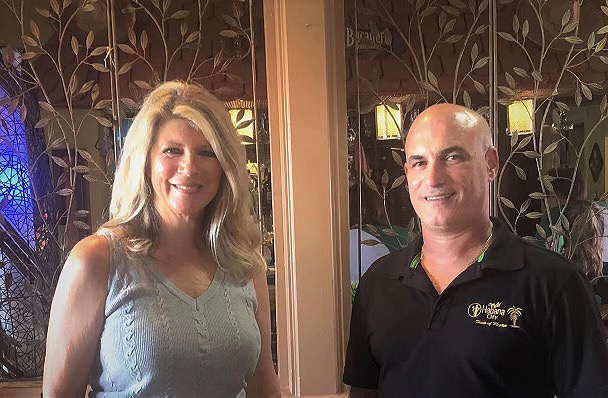Podcast: Play in new window | Download (Duration: 1:19:20 — 108.9MB)
Rafael Garcia, proprietor of Café Habana City, Lafayette’s first Cuban restaurant, joins Discover Lafayette to share his story of gaining political asylum in the U. S.
Rafael relocated to Lafayette with several family members on March 31, 1998, and as he remembers, “we landed at 11:45 a.m. after taking four flights to travel from Havana to the Lafayette airport.” The Diocese of Lafayette’s Office of Migration and Refugee Services was instrumental in helping them get their feet on the ground. With six months of food stamps and one month’s rent paid to stay at University Place Apartments with other Cuban immigrants who were mainly asylum seekers from Guantanomo Bay, Rafael set out to get work and learn how to live as a permanent resident of the U. S.
Rafael worked for four years for a company dealing with injection molding plastics before opening Cafe Habana City in 2002. In 2007, the restaurant moved to its current location at 911 Bertrand Drive in Lafayette. Diners experience homestyle Cuban cuisine which is lovingly prepared by “mothers and grandmothers of his family.” With thirty different menu options prepared with rich seasonings such as garlic, cumin, bell peppers, oregano, onions, and bay leaf, a signature beef dish to enjoy is Ropa Vieja which translates to “old clothes.”
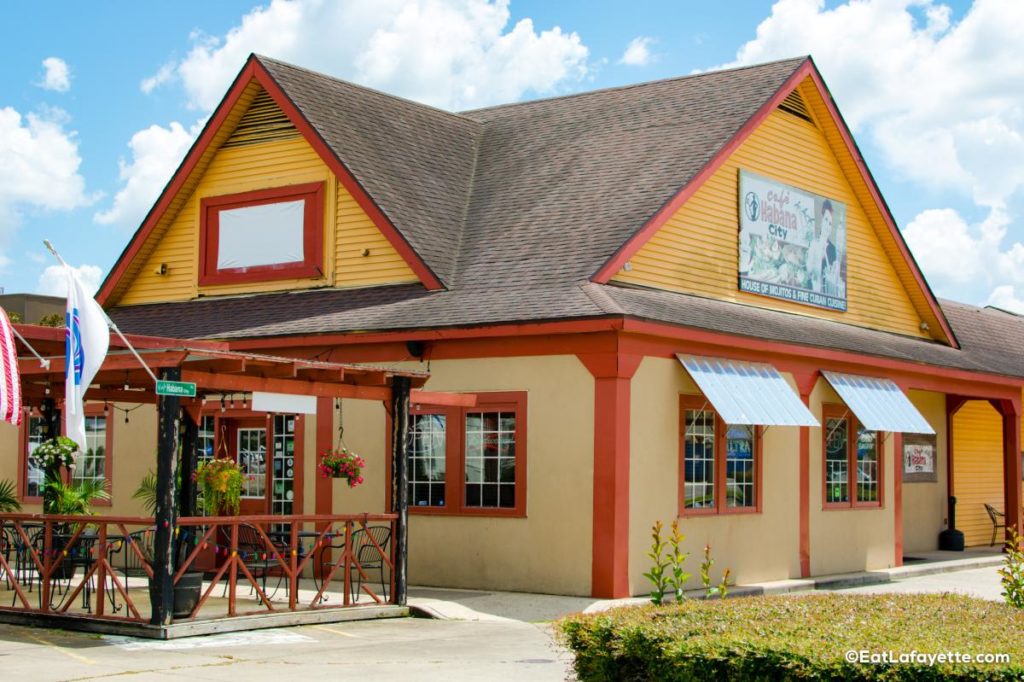
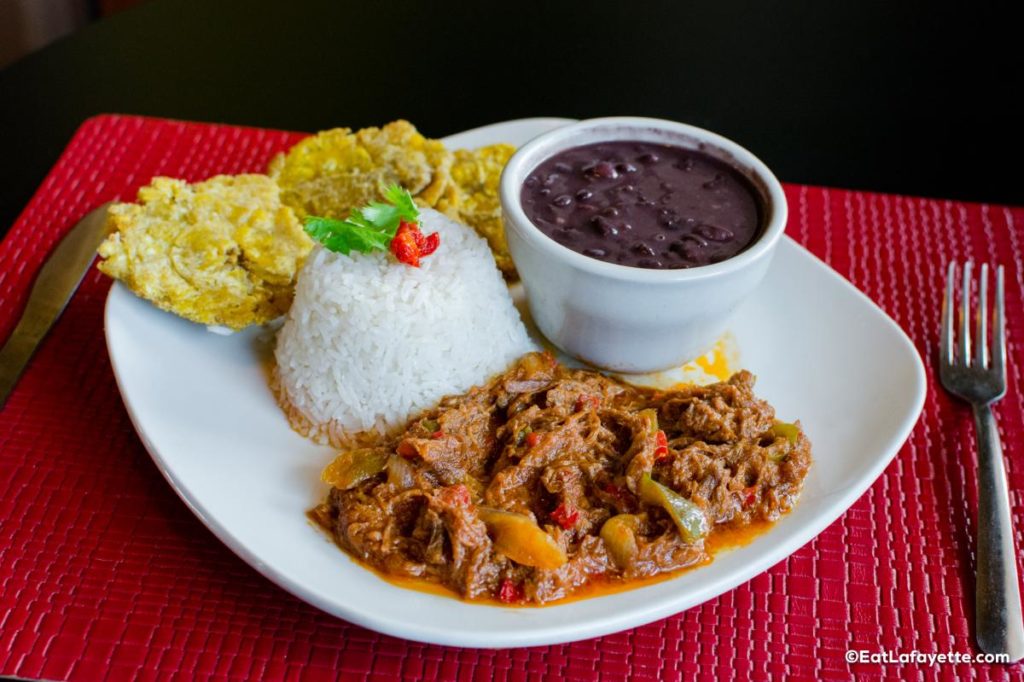
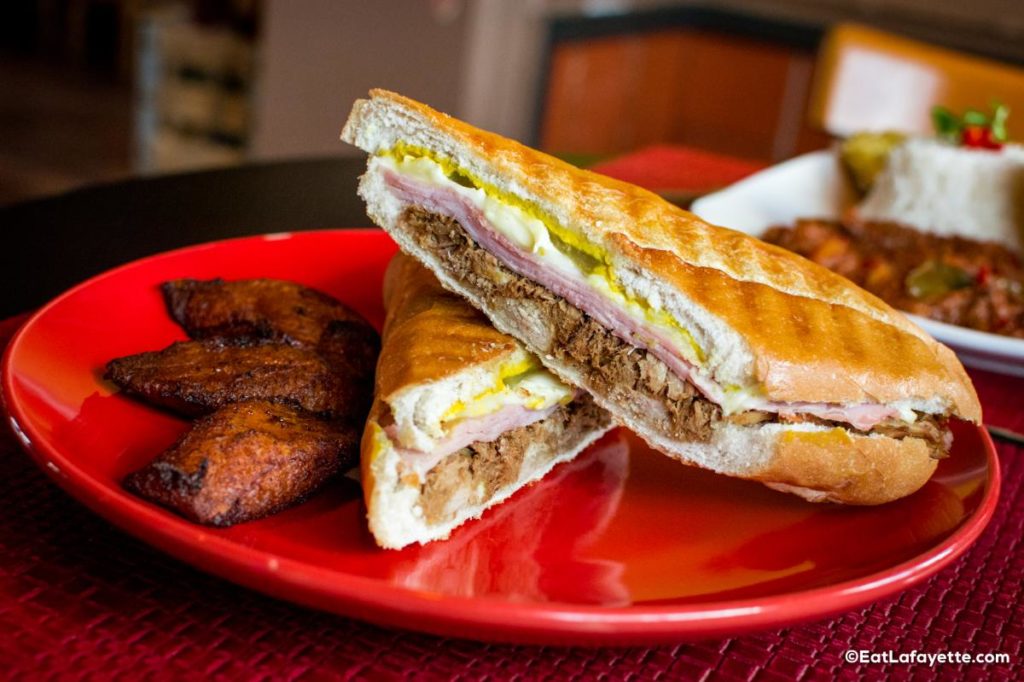
A native of Havana, Cuba, Rafael became a political dissident after his mandatory three years serving in the military from the ages of 17 to 20 years old. (Although it is a violation of U. N. protocol to have children under the age of 18 serve in the military, Cuba’s policy is to pick up teenagers in the summer for conscription after graduation from high school). Rafael noted that he was fortunate to have escaped battle conflict. In 1991, Cuba got out of the Angola War where they had supported the Communist People’s Movement; over 10,000 Cuban soldiers were either dead, wounded, or missing. “The Angola War was not our war. Many Cubans lost their lives there.”
A bitter opponent of the Castro regime, Rafael spoke of being born in 1971 in the middle of Cuban communism. He was a voice of Radio Marti, an American state-run radio station in Miami that transmits news in Spanish and is an illegal source of news in Cuba as it doesn’t toe the communist party line. He was jailed many times for speaking up against the government and at one point, was expected to serve 35 years in prison. While Rafael’s arrests were related to peaceful protest, violent protesters are either shot to death or jailed for life.
A sad byproduct of Cuba’s communism is that it divides families and friends who pay the price if you are a dissident. Rafael had studied Industrial Design for one year after his military service but was kicked out of school due to his continued protests against the government. “Educated people can’t associate with dissidents as the government will confiscate everything. The rest of the people make a living by selling Black Market items. You have your money confiscated if you show off. Stay humble, save money, and don’t paint your house or buy a car. This is what socialism does to people. This type of Mafia government takes everything.”
His daughter was born in 1996 and Rafael feared for her life if he did not get out of Cuba as he would undoubtedly be incarcerated for decades for his actions. He views himself as fortunate to have been able to get out before this occurred. With the help of U. S. Immigration, Rafael and several family members were granted permanent residency in the U. S., a status which is good for 10 years and allows immigrants to work legally, buy property, attend school, and build a life. Rafael has since become a U. S. citizen along with other family members and now has the right to vote.
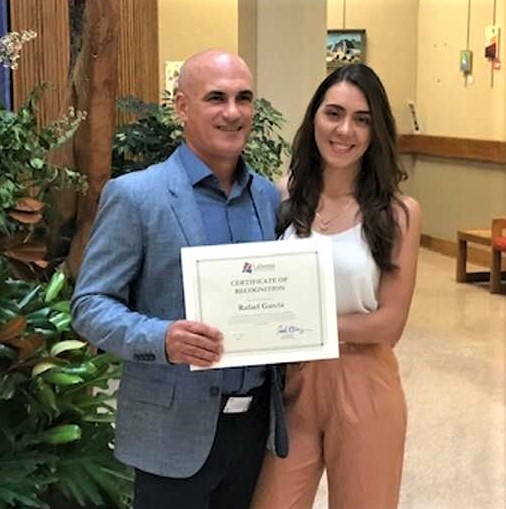
While many Cubans choose Miami as the place to relocate because of family members and a widespread Spanish-speaking population, Rafael chose Lafayette so that he could start anew and learn English. He was encouraged early on by the friendliness of the people in Lafayette and the diversity of the culture. He spoke highly of other Cuban immigrants who have built successful lives here in Lafayette. “All we wanted to do was work, to make up for the loss of time we experienced in Cuba. Most Cubans are successful, own their own homes, have gone to college, and drive their own trucks. They’ve become someone.”
Rafael Garcia is still a vocal dissident of the Cuban communist government and encourages people to visit #SOSCuba to learn more about the dismal living conditions of the Cuban people. Factors such as crippling economic, political, and health challenges in Cuba have led people internationally to protest the communist regime.
We thank Rafael Garcia for sharing his life story as well as the plight of the Cuban people. May he and his family enjoy the continued success of Cafe Habana City.

